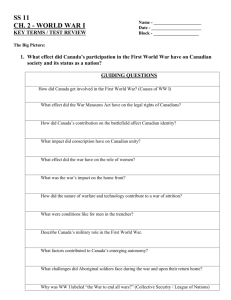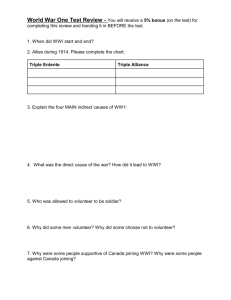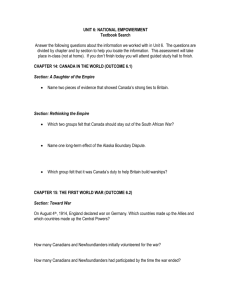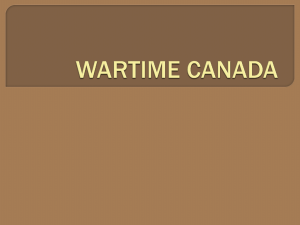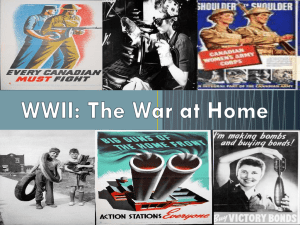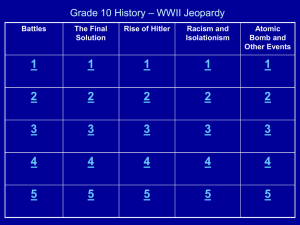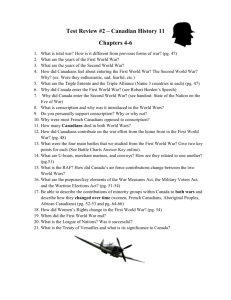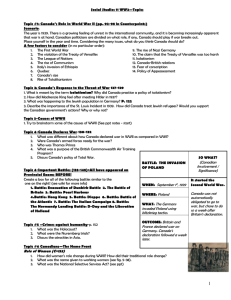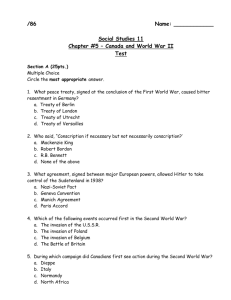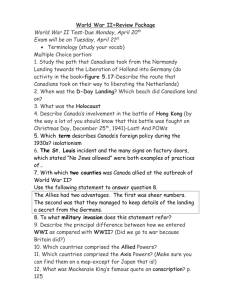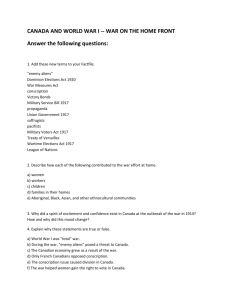World War 2 Outline
advertisement
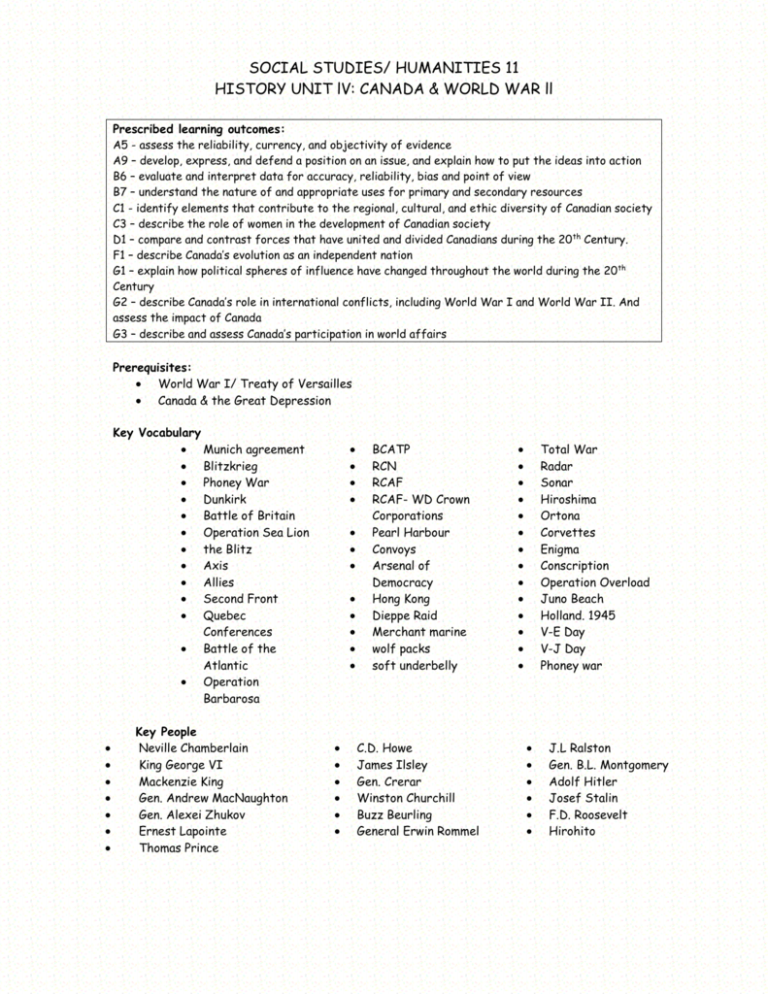
SOCIAL STUDIES/ HUMANITIES 11 HISTORY UNIT lV: CANADA & WORLD WAR ll Prescribed learning outcomes: A5 - assess the reliability, currency, and objectivity of evidence A9 – develop, express, and defend a position on an issue, and explain how to put the ideas into action B6 – evaluate and interpret data for accuracy, reliability, bias and point of view B7 – understand the nature of and appropriate uses for primary and secondary resources C1 - identify elements that contribute to the regional, cultural, and ethic diversity of Canadian society C3 – describe the role of women in the development of Canadian society D1 – compare and contrast forces that have united and divided Canadians during the 20 th Century. F1 – describe Canada’s evolution as an independent nation G1 – explain how political spheres of influence have changed throughout the world during the 20 th Century G2 – describe Canada’s role in international conflicts, including World War I and World War II. And assess the impact of Canada G3 – describe and assess Canada’s participation in world affairs Prerequisites: World War I/ Treaty of Versailles Canada & the Great Depression Key Vocabulary Munich agreement Blitzkrieg Phoney War Dunkirk Battle of Britain Operation Sea Lion the Blitz Axis Allies Second Front Quebec Conferences Battle of the Atlantic Operation Barbarosa Key People Neville Chamberlain King George VI Mackenzie King Gen. Andrew MacNaughton Gen. Alexei Zhukov Ernest Lapointe Thomas Prince BCATP RCN RCAF RCAF- WD Crown Corporations Pearl Harbour Convoys Arsenal of Democracy Hong Kong Dieppe Raid Merchant marine wolf packs soft underbelly C.D. Howe James Ilsley Gen. Crerar Winston Churchill Buzz Beurling General Erwin Rommel Total War Radar Sonar Hiroshima Ortona Corvettes Enigma Conscription Operation Overload Juno Beach Holland. 1945 V-E Day V-J Day Phoney war J.L Ralston Gen. B.L. Montgomery Adolf Hitler Josef Stalin F.D. Roosevelt Hirohito Basic Concepts Factors leading to the war Early Allied and Axis war plan Hitler’s early military successes The Battle of France and the Battle of Britain Canada’s contributions- land, sea, air, economic Course of the war outside of Europe Threat of invasion in England Importance of the Atlantic life line Entry of the U.S into the war Internment of Japanese Canadians Invasion of the Soviet Union- impact on the war The Quebec Conferences Opening the Second front Final campaigns Importance of technology to the war Cost of the war- to Canada, the world Impact of the war on the home front Focus Questions Critical Challenges: What were the major causes of World War II¨ How was Canada’s entry into WWII different from WWI What were the significant roles that Canada played in the war on the Home Front What was meant by “total war” List the major campaigns that Canadian troops played a part in. in Europe, Asia, and the ocean Why was D-Day a different outcome than the Dieppe raid How and why was conscription handled differently in the overall war effort How much of an issue was conscription What roles did women play in the overall war effort How did technology play a role in the outcome of the war How had Canada’s involvement in the war change her economy Suggested Skills and Strategies: Map work: On a series of maps. Show the stages of WWll in Europe and Pacific theatres Paragraph- Why was Germany successful at the beginning of the war Poster and assignment- Design an anti-fascist poster – or design a Canadian recruiting poster. In both cases, provide the English and French version of your poster. Using the internet and other sources, create a web-page on some aspect of war technology from WWII Design a game on an aspect of the war Canadians participated in. It could be economic, social, political, or military. Design a chart or graph that illustrates the contributions made by various Allied countries to the war effort. Do a chart or graph to show the cost of the war in dead and wounded. Compare the conscription crisis in the First World War with conscription in the Second World War. If there are any differences, what are they and why would they occur
